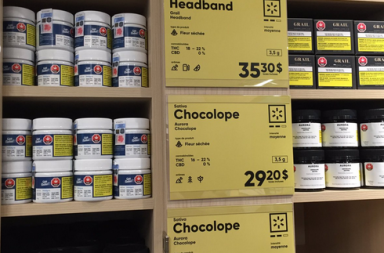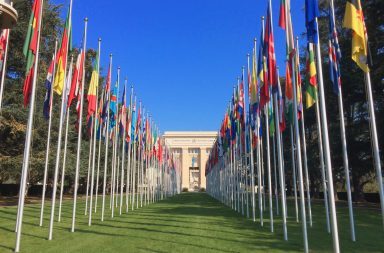This post is also available in:
 Italiano (Italian)
Italiano (Italian)
In the Caribbean Jamaica has for long had the most vocal drug policy reform movement and the most deeply embedded culture of cannabis consumption. It is also the largest English speaking country in terms of population and therefore has a far greater administrative and political capacity for designing policies and implementing regulation. The country takes a leadership role but also has to respect the sovereign rights of the other Commonwealth countries. In recent years Belize and Antigua and Barbuda have pushed through domestic cannabis policy reforms, including decriminalization for personal possession.
Across the Caribbean a perverse situation prevails, where social attitudes towards cannabis are quite relaxed and consumption widespread, while the legal system in all but the three above defines cannabis as a dangerous drug and penalises possession with custodial sentences. Examples abound, in Trinidad last year for instance, a middle aged old woman received a 3 year prison sentence for having a cannabis cigarette in her possession for her pain.
English speaking Caribbean countries often have a sense of isolation and marginalisation in international policy for a, owing the the asymmetric relationship to other countries in the region, particularly the US, the distance to former colonial powers, and because hemispheric dialogues are often along Hispanic-North American lines.
This is one of the reasons for the importance of regional coordination and solidarity and explains the importance of the Caribbean Community and Market (CARICOM) as a platform for policy making.
Jamaica has long been testing opportunities for policy change. The 2000 ‘Ganja Commission’ (chaired by Professor Barry Chevannes) suggested a series of reforms but had to be shelved after objections from the US ambassador.
New opportunities arose in the aftermath of the Organisation of American States meeting in Cartagena, 2012, and the subsequent reports on drugs opening up new options. At the sametime events in the US states and Canada were opening a window that Jamaica was first to take advantage of.
Jamaican reforms
Jamaica made amendments to the Dangerous Drugs Act in 2015 and established
a Cannabis License Authority (CLA) in legislation:
- The possession of up to two ounces (56.6 grams) of Cannabis is no longer a criminal offense, but police may issue a fine of J$500 which is equivalent to US$3.86 and may be referred to the National Council on Drug Abuse for counselling.
- Each household is now allowed to legally grow up to five cannabis plants
- A Cannabis Licensing Authority (CLA) was created to regulate cannabis industry for medical, therapeutic or scientific purposes
By late 2017 few farmers had applied for a cultivation license because of the complicated application process and fees. The perception was that the main interest of the agency was in attracting overseas investors. [1] The board has been dissolved in May 2018.
The changes have attracted a number of international investors and many different collaborations in the cultivation of cannabis and development of medical produce.
It is reported that since 2015 Jamaica has experienced a drop in youth crime and juvenile delinquency. This is associated with the drop in the number of young people put through the criminal justice system.
CARICOM Regional Commission on Marijuana
The Caribbean Community and Market (CARICOM) has appointed a commission to “conduct a rigorous enquiry into the social, economic, health and legal issues surrounding marijuana use in the Caribbean and to determine whether there should be a change in the current drug classification of marijuana thereby making the drug more accessible for all types of usage (religious, recreational, medical and research)“
It was a wide consultation exercise with town hall meetings and focus groups in 9 different countries across the region. The report, “Waiting to Exhale” [2] has just been published and one of the key findings is that :
“The majority of Caribbean peoples believe that the cannabis/ marijuana laws are ineffective, discriminatory, deeply unjust, unfit for purpose, violate rights and lack legitimacy. They also believe that prohibition is preventing the region from taking advantage of the economic opportunities in the cannabis industry and medical research and prohibiting access to medicine that can heal them more effectively and cheaply than traditional pharmaceuticals.”
It also found that “the existing prohibitionist regime induces more harm than any possible adverse consequences of cannabis/ marijuana itself.” It lists familiar argument from criminalisation, to the tension between police and community following eradication campaign, or the negative effect of turf wars.
It is also noted that legal penalties have made a travesty of justice since in some countries, violence even where it produces death can result in on custodial sentences and possession of small amounts of cannabis to sentences of 40 years.
Regarding economic impact “the highest financial benefits will come from a fully legalised model that is strictly regulated and the lowest benefit will come from decriminalising only. “ Benefits will be felt by farmers and in the tourism industry.
Way forward
“The Commission believes that the end goal for CARICOM should be the dismantling of prohibition in its totality, to be replaced by a strictly regulated framework akin to that for alcohol and tobacco… However, it acknowledges that law reform can take many forms and should conform to national realities. This is particularly because the Commission is of the view that law reform should not adopt a laissez-faire, liberalised approach, but proceed within a responsible, controlled regime “
It warns further that limiting reform to medical cannabis only will be inimical to economic growth. At the same time, “ the Commission does not believe that total legalisation in a fully liberalised regime is a plausible option at this juncture for CARICOM.”
Incremental reforms are recommended at this point, including a series of steps for implementing decriminalization measures on the ground, provision of medical marijuana and inclusion of small farmers in the benefits that are foreseen from medical and scientific programmes.
[1] See Emmanuel Machel in DAT https://www.emeraldinsight.com/doi/full/10.1108/DAT-09-2017-0052
[2] https://caricom.org/documents/16434/marijuana_report_final_3_aug_18.pdf




